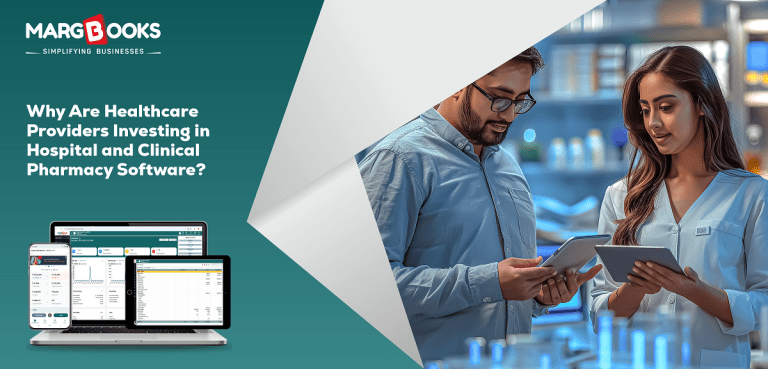The healthcare sector is undergoing a significant digital transformation, and one area that’s seeing rapid adoption of technology is pharmacy management. Healthcare providers, especially hospitals and clinics, are increasingly investing in hospital and clinical pharmacy software to streamline their operations, improve patient care, and ensure regulatory compliance. This trend isn’t just a passing phase—it’s becoming an essential part of modern healthcare. But why are healthcare providers so keen on adopting pharmacy software? Let’s explore the reasons in detail.
Rising Demand for Efficiency in Healthcare
As healthcare systems evolve, there is a growing need to improve operational efficiency. With the increasing number of patients, managing pharmacy operations manually has become cumbersome and error prone. Traditional methods of medication dispensing and prescription tracking can lead to delays, mistakes, and inventory discrepancies.
Hospital and clinical pharmacy software addresses these issues by automating critical processes. From prescription management to drug inventory tracking and patient medication history, this software ensures that everything runs smoothly and efficiently. Hospitals are increasingly relying on these solutions to reduce human errors, enhance workflow productivity, and ultimately provide better patient outcomes.
Key Features of Hospital and Clinical Pharmacy Software:
- Automated Prescription Management
The software automates prescription entry, reducing human errors, and ensuring that the right medication is prescribed to the right patient at the right dosage. - Inventory Tracking
Efficient inventory management is crucial for ensuring that medications are always in stock. The software offers real-time tracking of pharmaceutical supplies, helping hospitals prevent shortages or overstocking. - Patient Medication Records
It maintains an electronic record of a patient’s medication history, enabling healthcare providers to make informed decisions when prescribing new medications and avoiding potentially harmful drug interactions. - Billing and Compliance
The software often comes with integrated pharmacy billing software that streamlines the billing process, ensuring compliance with local and national regulations.
Cost-Effectiveness and Budget Optimization
In a healthcare setting, the cost of medication can be a significant part of the overall expenditure. Hospital and clinical pharmacies need to optimise their resources to ensure that they’re not overspending while providing the best possible care.
Investing in pharmacy software helps achieve this goal by reducing wastage, improving inventory management, and enhancing the accuracy of orders. Automation also reduces the need for manual labour, cutting down operational costs. With real-time data and automated stock control, hospitals and clinics can save money by ordering supplies at the right time and quantity.
How Pharmacy Software Helps in Cost Management:
- Prevents Overordering and Stockouts
By monitoring the stock levels, the software ensures that hospitals only order medications that are needed, reducing unnecessary purchases and wastage. - Better Billing Accuracy
Integrated pharmacy billing software eliminates human errors in billing, which can lead to revenue losses and disputes with patients or insurance companies. - Resource Optimization
Automating administrative tasks allows staff to focus on more value-driven activities, ultimately leading to better use of resources and manpower.
Improved Patient Safety and Compliance
In today’s healthcare environment, patient safety is paramount. Medication errors, which can occur due to incorrect prescription, dispensing, or administration, are a significant concern. The use of hospital and clinical pharmacy software helps mitigate these risks by automating key processes such as medication checks and drug interactions.
Moreover, the software helps healthcare providers stay compliant with healthcare regulations, such as the Indian government’s standards for drug dispensing and record-keeping. This is crucial not only for patient safety but also for avoiding legal and financial penalties.
Key Benefits in Patient Safety and Compliance:
- Error Reduction
Automated medication checks and alerts for possible drug interactions significantly reduce the likelihood of medication errors. - Audit Trails
The software maintains detailed logs of medication administration, ensuring accountability and making it easier for hospitals to comply with audits from regulatory authorities. - Real-time Monitoring
Healthcare providers can monitor patient responses to medications in real time, ensuring that any adverse reactions are addressed promptly.
Seamless Integration with Other Healthcare Systems
For healthcare providers to offer optimal care, their various departments and software systems need to communicate with each other. Hospital and clinical pharmacy software integrates seamlessly with other healthcare management systems, including Electronic Health Records (EHR), Laboratory Information Systems (LIS), and hospital management software.
This level of integration ensures that patient data flows smoothly across different departments, allowing healthcare providers to make more informed decisions. It also enables better coordination between pharmacy departments, doctors, nurses, and other healthcare professionals, resulting in more holistic patient care.
Benefits of Integration:
- Unified Patient Records
Integrated systems ensure that all patient information, including prescriptions, lab results, and medical history, are available in one place for easy access. - Efficient Communication
With seamless communication between different healthcare departments, the software ensures faster decision-making and reduces the chances of miscommunication. - Better Medication Management
Integrated pharmacy software allows for the smooth transfer of prescription data, making it easier for pharmacists to check for errors and dispense the correct medication.
Future of Hospital and Clinical Pharmacy Software
As the healthcare sector continues to embrace digital innovation, the role of hospital and clinical pharmacy software is only expected to grow. The rise of artificial intelligence (AI) and machine learning (ML) is already transforming the way healthcare providers manage their pharmacies.
For example, AI can help predict medication demand based on patient trends, making inventory management even more efficient. Moreover, ML algorithms can assist in detecting potential drug interactions and recommending alternative treatments based on a patient’s medical history.
What’s Next for Pharmacy Software?
- AI-driven Personalisation
Pharmacy software will become more personalised, recommending tailored medication regimens based on individual patient profiles. - Telepharmacy Integration
With the rise of telemedicine, pharmacy software will increasingly integrate with telehealth platforms to allow pharmacists to remotely manage patient prescriptions and provide virtual consultations. - Blockchain for Security
Blockchain technology could revolutionise the way patient records are stored and shared across healthcare systems, ensuring greater security and transparency.
Conclusion
The investment in hospital and clinical pharmacy software is no longer just a luxury—it’s a necessity for healthcare providers aiming to improve operational efficiency, reduce costs, enhance patient safety, and remain compliant with regulatory standards. As healthcare continues to evolve, embracing technology will be key to staying ahead in a highly competitive and ever-changing environment.
With the right pharmacy software solutions, hospitals and clinics can deliver better care, optimise their resources, and drive improvements across the entire healthcare system. Providers like Margbooks, a trusted name in pharmacy management solutions, are already leading the way in offering tailored software that meets the unique needs of hospitals and clinics.
Investing in modern pharmacy technology today will not only help healthcare providers meet the demands of the present but also prepare them for the challenges of the future.




